Farmers tap CSIF program for tree replacement after derecho
06-23-2021 in Article
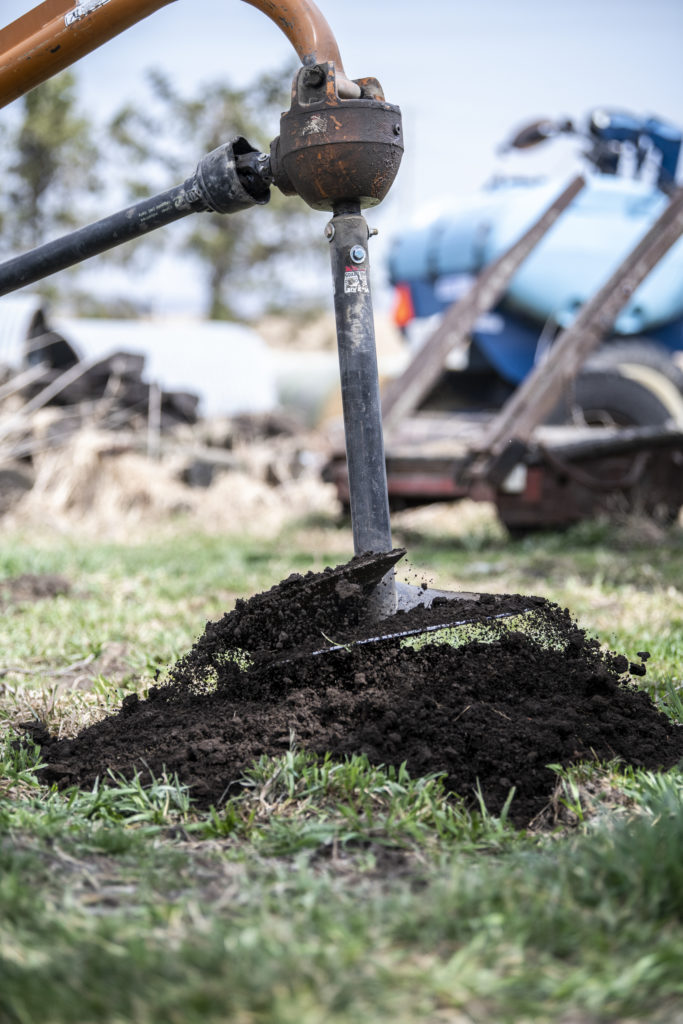 On August 10 of last year, Mark Flamme and his son stood in their machine shed doorway and watched a massive storm, known as a derecho, flatten nearly everything in sight. As trees from the grove went flying by, they pondered making a run for the safety of the nearby house basement. There was a fallen tree in front of the house. The 100-mile per hour straight-line winds kept coming.
On August 10 of last year, Mark Flamme and his son stood in their machine shed doorway and watched a massive storm, known as a derecho, flatten nearly everything in sight. As trees from the grove went flying by, they pondered making a run for the safety of the nearby house basement. There was a fallen tree in front of the house. The 100-mile per hour straight-line winds kept coming.
“We knew we had to get to the cattle,” said Flamme. He and his son feed cattle in Tama County near Gladbrook. A grove and a wooden fence windbreak protect the cattle yard. Or, did. “By the time we reached the cattle they were shell-shocked, hovered at the east end of the yard. The windbreak lay on the ground. The grove was flattened.”
“At least we didn’t have to worry about the cattle taking off and getting lost in the cornfield like our 4-H calves once did,” Flamme continued. “The corn was flattened. There was nowhere to hide.”
They were able to combine cattle from two yards and keep them contained and safe.
The trees were not so lucky. Even the pine trees planted by his great-grandfather were snapped like twigs.
“There wasn’t much we could do but bring in an excavator and get rid of them,” said Flamme.
At the Roger Bockes farm near Grundy Center, the derecho snapped 100-year-old, 70-foot, white pines off about 10 feet from the ground. Bockes lost around 25-30 trees that day; decimating the windbreak he depends on to protect his homestead and hog barns.
“The derecho was pretty hard,” said Bockes. “It was once a nice windbreak. Now it’s a mess. We didn’t want to mix trees, so we had to take everything down – and get ready to buy new trees this spring.”
Bockes and Flamme join farmers from across the state that lost vital weather protection in the storm.
Bockes’ place nearly 8 miles from the grove was hit even harder. There the derecho wreaked vengeance on a 6-acre grove of 35 mature white pine, oak and maple trees. But the site received little damage to buildings, and the hog barns escaped structural damage, with the west-facing exhaust fans bearing the brunt of the storm.
Flamme had a similar experience, with overturned equipment, but no building loss. “It’s amazing we didn’t lose buildings,” says Flamme. “Not even the old barn built by my great-grandfather. There’s a reason they’re still there. I’m anxious to get my protection back.”
According to Iowa State University research, windbreaks reduce wind speeds, control snow drifting and accumulation in farmsteads, provide wildlife habitat, enhance farmstead value, and provide a more pleasant environment. Reduced wind speeds in winter months provide monetary benefits. Homes or confinement buildings require 7 to 25 percent less fuel for heating. Livestock protected by a windbreak are 3-7 percent more efficient in conversion of feed to weight gain. Other benefits of windbreaks are measured in quality of life improvement. 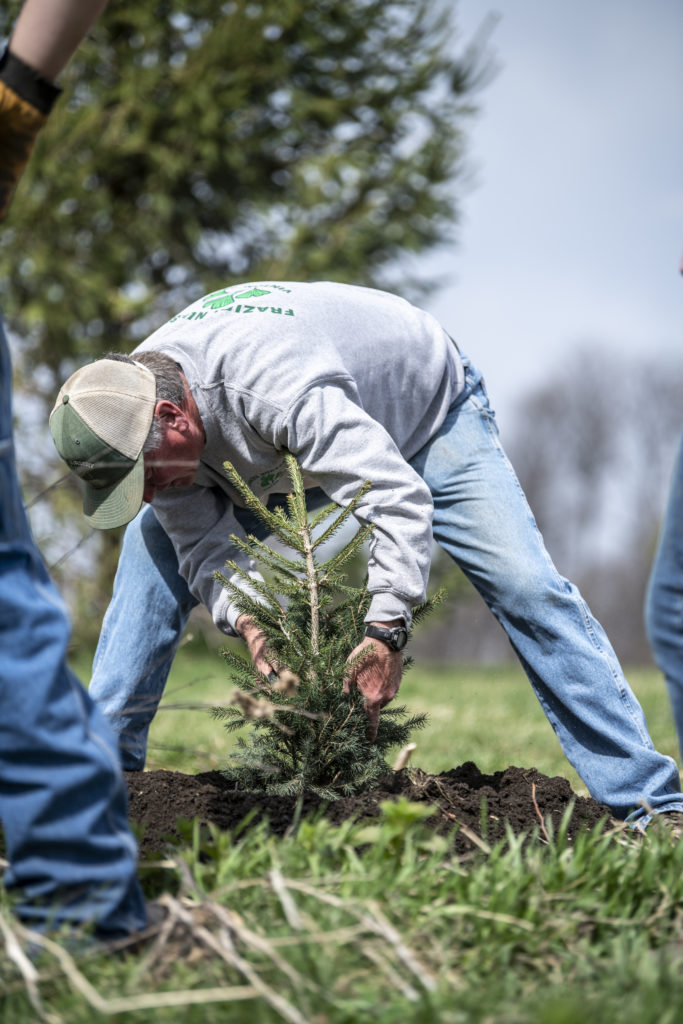
Both men turned to the Coalition to Support Iowa’s Farmers for help.
CSIF saw the devastation created by the derecho and wanted to help. Given their long-time experience with the Green Farmstead Partner Program that helps farmers plant trees and shrubs on livestock farms in partnership with 30 nurseries, they turned to supporting partners for additional funding and started the CSIF Derecho Windbreak Grant program.
Through the program, farmers who suffered windbreak loss from the derecho applied for financial assistance toward tree replacement.
More than 40 farmers used the CSIF Derecho Windbreak Grant Program, including Flamme and Bockes. A WHO Radio Big Show broadcast steered Flamme toward the online application.
“I would recommend anyone use CSIF,” said Bockes. “It’s nice to have this type of resource.”
WE’RE HERE TO HELP
“If your farm sustained damage to its livestock and poultry barns, open feedlots or windbreaks, now may be a good time to have the Coalition come out to your farm and assess your best options for moving forward,” said CSIF Executive Director Brian Waddingham. A visit from a CSIF staff member is free of charge and completely confidential. In many cases, windbreaks are part of the farm’s Manure Management and Master Matrix plans.
Across the state, even in good weather, farmers are looking to the CSIF Green Farmstead Partner Program to tap the benefits of windbreaks.
The nursery professionals are well versed in the particular needs of livestock site windbreaks. That means farmers starting from scratch can devise a custom windbreak that works for their site and circumstance.
“They know more about what trees and shrubs work best for our buildings,” said Flamme. “Instead of just scattered, it will be customized to my farm.” He can make the exact location more precise, rearrange his cattle yard a bit, and plans to add a new machine shed.
Even a shortage of available trees is working in his favor, with the trees coming after the building siting.
The tree shortage, due in part to the demand from last summer’s storms, is what is now standing between farmers and their windbreaks. With the help of CSIF, 1,668 trees have been replaced, but the work is just beginning.
Stacked hay bales and even piles of trees offer what protection they can, but yet livestock producers remain at the mercy of the summer heat, winter cold, glaring sun and prairie wind.
Lack of trees has Bockes putting off planting until 2022. He is looking on the bright side, using the time to remove stumps, plant a mowable lawn, and make use of the nursery professionals’ expertise. “I miss those 80 foot trees,” says Bockes, “but we can plan the new windbreak to make the best use of our limited space.”
The nursery professionals partnered with CSIF are working diligently to locate trees and line up seedlings for next year’s projects. They are looking to solutions like mixing fast growing and slow growing trees, with the slow growing varieties removed in time, to replace farmers’ protective wind breaks as quickly as possible.
“The folks at CSIF are good people,” said Bockes. “They’re willing to stick their neck out to help. And because of the derecho, they’ve been able to help a lot of people.”
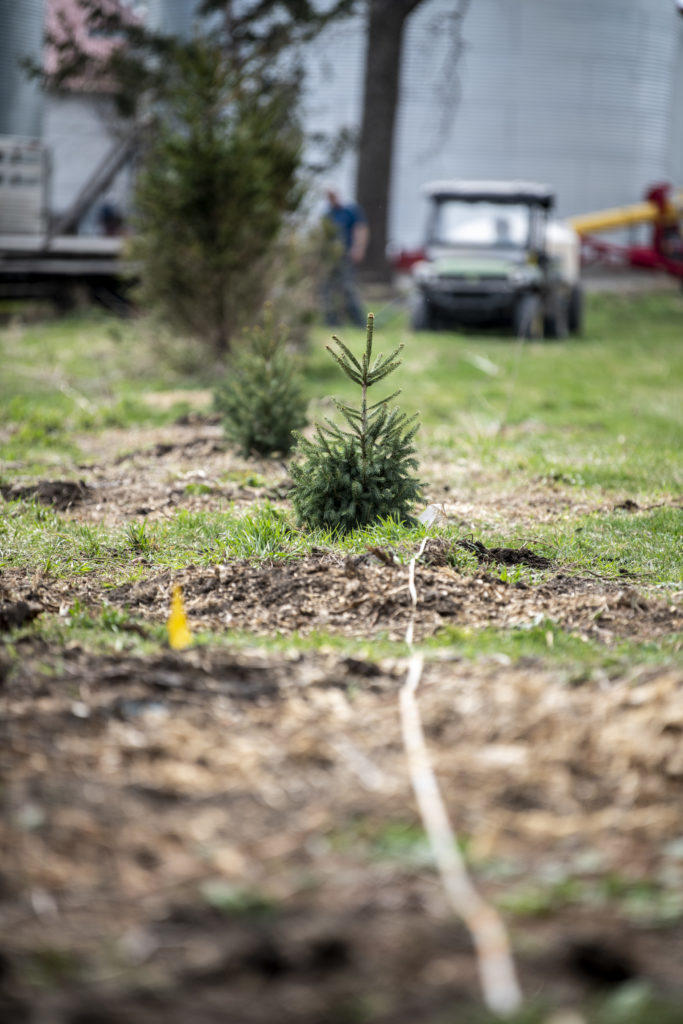 You can learn more about the Coalition at supportfarmers.com or by calling 800-932-2436.
You can learn more about the Coalition at supportfarmers.com or by calling 800-932-2436.
CSIF is a non-profit, non-lobbying organization that assists livestock farmers who want help interpreting rules and regulations, guidance on identifying good site locations for barns, counsel on enhancing neighbor relations and tips on how to protect the environment at no cost. This positive, solutions-based approach to helping livestock farmers grow is a collaborative effort involving the Iowa Beef Industry Council, Iowa Cattlemen’s Association, Iowa Corn Growers Association, Iowa Farm Bureau, Iowa Pork Producers Association, Iowa Poultry Association, Iowa Soybean Association, Iowa Turkey Federation and Midwest Dairy.
By Terri Queck-Matzie for CSIF. Queck-Matzie is a freelance writer from Greenfield.
Recommended News
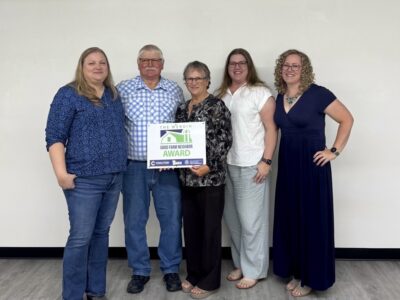
Southeast Iowa farm family honored for contributions to their community, care for their land and livestock
Mike and Diana, along with the help of Mike’s brother Mark, operate Rysdam Family Farm, a diversified cow/calf beef cattle operation that also raises corn, soybeans, hay, wheat and oats....
Read More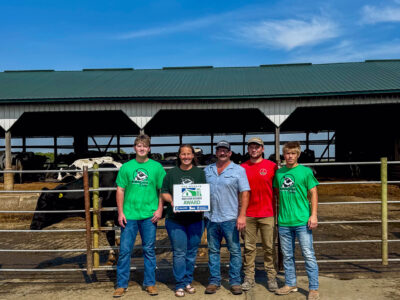
Multi-generational Bremer County family to be honored during a ceremony at their farm
Jeremy and Sara Ebaugh, along with their three sons, John, Joe, and Jeb, operate Ebaugh Dairy, a fourth-generation farm that is home to Holstein dairy cows, a cow/calf herd and...
Read More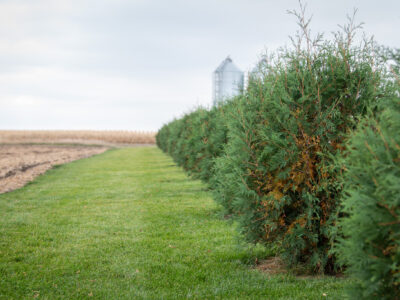
Green Farmstead Partner Program Supports Boone County Family in Adopting Sustainable Practices
Rod and Missy Bice of Boone County have sought guidance from the Coalition to Support Iowa's Farmers (CSIF) for help with rules and regulations regarding their livestock farm, Golden Circle...
Read More